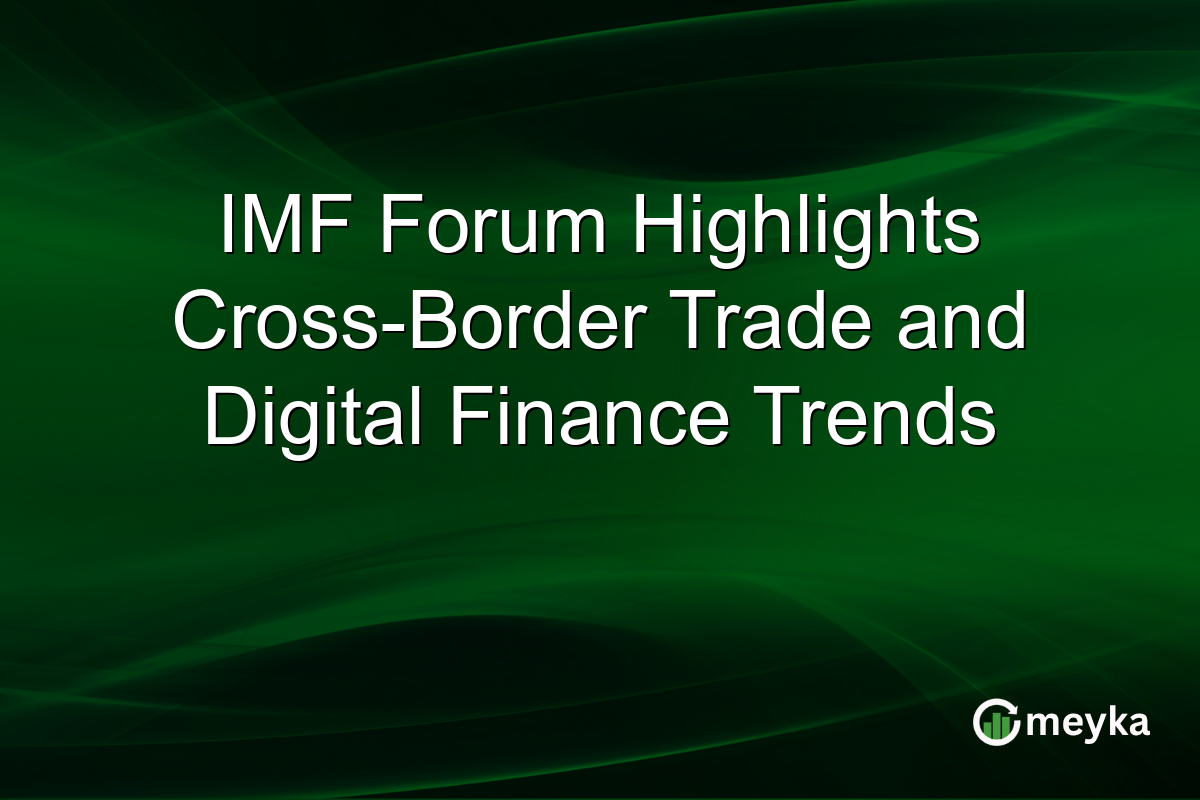IMF Forum Highlights Cross-Border Trade and Digital Finance Trends
The International Monetary Fund (IMF) recently hosted a forum focusing on cross-border trade trends and digital finance. This event highlighted the increasing role of multinational enterprises and the growth of digital services in the global economy. As cross-border trade continues to evolve, understanding these trends is vital for investors and policymakers. The forum unveiled recent IMF statistics showing how digital finance is reshaping global supply chains and providing new opportunities for economic expansion.
Continue Reading on Meyka
This article is available in full on our main platform. Get access to complete analysis, stock insights, and more.
Read Full Article →





